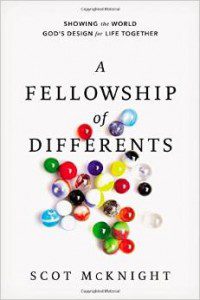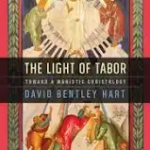Timothy George on Bonhoeffer at Advent in prison:
At this point, Bonhoeffer still hoped he might be released, perhaps even in time to spend Christmas with his family and his nineteen-year-old fiancée Maria von Wedemeyer. It was not to be. Though he would be shifted to other prisons and concentration camps on the way to his eventual execution at Flossenbürg in April 1945, he would never escape the Nazi grasp. This fact did not diminish but rather deepened Bonhoeffer’s Advent reflections. Eight months after his arrest, Bonhoeffer wrote these words, “By the way, a prison cell like this is a good analogy for Advent; one waits, hopes, does this or that—ultimately negligible things—the door is locked and can only be opened from the outside.” Advent reminds us that
misery, sorrow, poverty, loneliness, helplessness, and guilt mean something quite different in the eyes of God than according to human judgment; that God turns toward the very places from which humans turn away; that Christ was born in a stable because there was no room for him in the inn—a prisoner grasps this better than others. And for them, this is truly good news.
Tegel prison itself was built in the shape of a cross, and this fact was not lost on Bonhoeffer. More and more he turned toward Luther’s theologia crucis as a way of understanding the connection between Mary’s carrying the Christ child to term in her womb and her waiting with her beloved son beneath the cross. In prison Bonhoeffer was beset by longing, homesickness, and the torment of separation from those he loved so much. “We simply have to wait and wait,” he wrote. “The celebration of Advent is possible only to those troubled in soul, who know themselves to be poor and imperfect, and who look forward to something greater to come.”
Good news: Women in Ministry series starts Monday, but this story can kick it off!
Parliament in London is an old-fashioned place. When members gather in the House of Commons, the sea of faces is generally wrinkled, white and male.
The chaplain who leads them each day in prayer is emphatically not.
The Rev. Rose Hudson-Wilkin is the first black woman to serve as chaplain to the speaker in the House of Commons. She broke the same barrier when she was appointed chaplain to Queen Elizabeth II. She was also the first woman, and the first person of color, to run her parish in Northeast London.
She currently juggles all three of those roles, shuttling back and forth between the poor, diverse communities of her churches and the magnificent, rarefied worlds of Westminster and Buckingham Palace. It has been a long journey for the girl who was raised in poverty by her aunt on the shores of Montego Bay, Jamaica.
Derby the dog on prosthetics:
Grab some tissues: An adorable dog named Derby, born with deformed front legs, has been given a set of 3-D printed prosthetics. And these custom-made legs, which he can rock back and forth on (to keep him from getting stuck in the dirt) don’t just help him walk more easily. With his new legs, he can run.
Derby had the good fortune of being fostered by a woman who knows all about 3-D printing. Tara Anderson works for the company 3D Systems, and she knew that custom prosthetics made with this technology are a more practical choice than traditional prosthetics.
3-D printing has already caused quite a stir in the market for human artificial limbs — especially for kids. Because scans of the patient’s anatomy can be loaded into a computer and saved, they don’t need to go through the process of getting a new mold every time they grow. And while 3-D printing is far from being a perfect production process, it’s still a whole lot cheaper than traditional methods.
Do we eat as families?
Maybe you’ve heard somewhere that no one eats dinner together anymore. There’s even some pushing the idea that instead of scrambling to eat dinner together, families should aim for breakfast. And maybe you believed that family dinners were dead, based on your household’s experience.
Well, it’s not true. Not nationally, anyway. And not, for that matter, in just about every state in the country.
Across the United States, roughly 88 percent of Americans still say they frequently eat dinner with other members of their household, according to a new study by the Corporation for National and Community Service. While that percentage has fallen in recent years—by roughly 2 percent since 2011—it’s still remarkably high.
Perhaps even more surprising is how consistently respondents in different regions report the same overwhelming response. In more than 20 states, the percentage of people who said they frequently ate with people they lived with was at or above 90 percentage (when rounding half percentage points up); 31 states sport a higher than average rate. And in only one—New Mexico—does the percentage dip below 80 percent.
Still, 35 too many:
Amid growing concerns about how executions are carried out in the United States, the number of prison inmates being put to death fell to a 20-year low in 2014, the Death Penalty Information Center said in a report issued on Thursday.
The 35 executions this year was the lowest since 1994, said the Washington-based nonprofit, which does not take a position on whether the death penalty should be abolished, in its annual survey of national data.
The number of people sentenced to death is also falling, the report said, reaching 72 by mid-December of 2014 the lowest in 40 years.
Wifi wisdom.
Matthew Lee Anderson responds to Julie Roys and Owen Strachan:
This latest round of discussion was prompted by Julie Roys’ article at World about Julie Rodgers, a chaplain at Wheaton who identifies as gay while being staunchly committed to traditional Christian norms of chastity and celibacy.** This is a position that has become identified with the excellent blog “Spiritual Friendship,” which my friends Ron Belgau and Wesley Hill have run. But according to Roys, this way of dividing things up is unorthodox. Or as Owen Strachan puts it, evangelicals who take this stance are “playing with theological fire.” While I agree with Strachan up to this point, I’d add that so are those who reject it: to think theologically at all is to play with fire. The only question is whether we shall all be sanctified by the process of such thinking, or burned to ashes and left in a heap.
Having noted my general reluctance to taking up this issue, though, allow me to wade in more directly on the question, as to this point I’m not at all persuaded by Roys or Strachan that conservative Christians should be Really Worried about Rodgers’ view. Strachan laid out ten theses on the subject in order to pursue some desperately needed clarity, including definitions of the contested terms ‘orientation,’ ‘temptation’, and ‘desire.’ Of course, definitions can be used in a lot of ways, and Strachan loads the dice against Rodgers in a way that is simply not helpful. He suggests that ‘orientation’ is a pattern of desires “oriented toward an end,” which in this case is same-sex sexual activity. I say it’s not helpful because if that’s what an orientation is then I doubt Rodgers (or Wesley Hill or Ron Belgau: hereafter Rodgers and co.) thinks, in the final analysis, that it would be compatible with the traditional Christian teaching on human sexuality, teaching which they clearly affirm.*** Let me put it this way: while Michael Hannon wants to destroy the ‘orientation’ regime altogether, Rodgers and co. want to reform it by untethering the term ‘gay’ from its common association with sex acts or the desires that may lead them. They have inflationary aims for the term: they want to fill it in with lots of other content that is morally commendable, even while they recognize that their usage may be idiosyncratic given its common associations.
Duggars — from strength to strength:
A petition urging TLC to cancel “19 Kids and Counting” over the political views of the Duggar family “won’t succeed,” according to family patriarch Jim Bob Duggar. In fact, he said recently, all of the attention around the effort is working in the family’s favor, giving the Duggars even more exposure.
The petition, which currently has more than 180,000 signatures, began as a response to the family’s recent comments against LGBT rights. It gained traction quickly and drew a lot of attention to some of the family’s recent activism.
But Jim Bob Duggar probably has good reason not to be worried about the petition: The effort to raise awareness about the family’s political views prompted its conservative supporters to launch a counter campaign, urging TLC to keep the show . A “Defend the Duggars” petition on LifeSiteNewscurrently has almost 210,000 signatures — more than the petition telling TLC to scrap the popular series.
Hugs and colds:
Do you need a hug?
If you’re trying to ward off colds and the flu this winter — and who isn’t? — the answer is yes, according to a study by Carnegie Mellon University researchers released Wednesday and scheduled for publication in the journal Psychological Science.
“The apparent protective effect of hugs may be attributable to the physical contact itself or to hugging being a behavioral indicator of support and intimacy,” Sheldon Cohen, a professor of psychology, and his team wrote. “Either way, those who receive more hugs are somewhat protected from infection and illness-related symptoms.”
Cohen’s study was actually an attempt to determine how much protection social support provides against stress and the physical vulnerability it creates, in this case to colds and flu. As expected, the researchers found that people who perceive that they have strong social support networks enjoyed a degree of “buffering” against stress and those physical ailments. When they separated out hugging’s role in that protection, they were able to assign it “32 percent of the attenuating effect of support.”
Handwritten notes makes you smarter:
Typing is fast.
Handwriting is slow.
Weirdly, that’s precisely why handwriting is better suited to learning.
Take it from research psychologists Pam A. Mueller of Princeton University and Daniel M. Oppenheimer of the University of California, Los Angeles, who did a fascinating study investigating just how terrible laptops are for note-taking in classrooms.
Earlier studies have argued that laptops make for poor note-taking because of the litany of distractions available on the internet, but their experiments yielded a counterintuitive conclusion: Handwriting is better because it slows the learner down.
By slowing down the process of taking notes, you accelerate learning.
Extroverts, introverts and immunities:
Outgoing, sociable people also have the strongest immune systems, a new study finds.
Those who are the most conscientious and careful, though, are most likely to have a weaker immune system response.
The research found no evidence, though, that a tendency towards negative emotions was associated with poor health.
The study, published in the snappily titled journalPsychoneuroendochrinology, gave personality tests to 121 health adults (Vedhara et al., 2014).
Thinking of an academic career? Ben Witherington’s wisdom is the same I give:
It is well to remind you that while there are still plenty of tenure track institutions in the world, there is certainly a trend away from such kinds of employment. Seeking a job in Biblical Studies is increasingly a faith venture, but that does not mean either it is impossible or not worth doing. To the contrary, it may provide the ideal conditions for being a good teacher— namely you really need to rely on God and his direction for your life.
[SMcK: I add one emphasis: I urge those who want to do a PhD in Bible and Theology, especially if they are white males, to do so only if they are gifted to pastor. Why? Because employment opportunities in NT are way down and we need more teaching pastors, though not all are good at preaching or teaching in churches.]
On sleep — it’s good for us.
Did you try to catch up on sleep this weekend? You’re not alone. More than one third of American adults report getting less than 7 hours of sleep on weekdays, and many of them try to sleep extra-long on weekends to make up for it.
This isn’t a particularly healthy way to live — insufficient sleep is associated with obesity, high blood pressure, diabetes, and a host of other physical ailments. Drowsy driving causes around 80,000 automobile accidentsevery year, 1,000 of which are typically fatal.
The simple reason for shortchanging sleep on the weekdays? Work. A team of researchers examined nearly 125,000 responses to the American Time Use Survey to calculate two things: first, how much sleep we’re getting, and second, what we’re doing instead of sleeping….
To put it another way: to the extent that we’re trading sleep for work, our jobs are literally killing us.
UK and America — divided by a common language: by Lauren Davis.
Johnson’s political predictions proved less prescient than his linguistic ones, and after America won its independence from England, questions of national identity arose. Some thinkers of the era actually wondered if Americans should even speak English anymore, as the language suggested the yoke of England. More radical suggestions included changing the national language to German (which roughly ten percent of the country already spoke) or Hebrew (which was taught in some New England schools).
Benjamin Franklin, meanwhile, had his own idea for the English language. Franklin proposed a major spelling reform, on that make English spelling completely phonetic. This would involve an overhaul of the alphabet, losing c, j, q, w, x, and y, and adding six new letters. The idea never caught on.
Into the linguistic fray stepped Noah Webster, lexicographer, writer, and relentless self-promoter. Webster was thoroughly Yankee; his family on both sides were American colonists several generations back and he even had an ancestor on the Mayflower…. Webster wasn’t a fan of Benjamin Franklin’s new alphabet scheme, but he did eventually warm to the idea of spelling reform. He wrote essays advocating for a more streamlined orthography, one that would steer American English in a new direction. He imagined that, one day American would be as distinct from British English “as the modern Dutch, Danish, and Swedish are from the German, or from one another.” And his 1806 A Compendious Dictionary of the English Language proposed such an orthography….It would be another 27 years before Webster put out another dictionary, his far more comprehensive An American Dictionary of the English Language. Although by this point, the older (and perhaps wiser) Webster had abandoned some his more extreme spellings, this volume contained many of the spellings we associate with modern American English. Words like “theatre” and “centre” became “theater” and “center.” “Masque” became “mask” and “offence” was now “offense.” And words like “colour,” “favourite,” and “mould” each lost their “u” (in part because Webster was staunchly anti-French).
America and volunteerism, by Natalie DiBlasio:
Volunteerism is slightly down in the U.S, according to a new study that ranks states on their philanthropic efforts.
This year, 62.6 million Americans volunteered for nearly 7.7 billion hours, according to the Corporation for National and Community Service’s annual “Volunteering and Civic Life in America Report.” That’s down from 64.5 million Americans volunteering nearly 7.9 billion hours last year.
Citizens of Utah, Idaho, Minnesota, Kansas and Wisconsin are leading the way in overall volunteerism while Louisiana, New York, Nevada, Florida and Arkansas remain the least philanthropic for the second year in a row. “It ticks up and down,” says Wendy Spencer, CEO of the Corporation for National and Community Service, the federal agency for volunteering and service. “I don’t think it’s significant.”
“We’ve seen the national results come back and have been dismayed,” says Judd Jeansonne, executive director of government-run Volunteer Louisiana. Only 17.8% of Louisiana residents volunteer, according to the survey.
Chris Brooks, Matt Erickson — interracial dialogue on Ferguson:
As I watched things unfold in Ferguson recently, I felt a surging of different thoughts and feelings within me. There was a mixture of sadness and fear, anger and helplessness, and my mind raced to come to terms with what this means not only for our nation but for the church. I’m a pastor of a multiethnic church in Milwaukee. Our church has been a community that is diverse ethnically, socio-economically, politically, and in other ways. As I sat and watched the events and all that has followed since, I wondered, “what is required of the people of God when such difficult and painful things grip our nation?”
As I have reflected since that painful evening last week, I have reached some preliminary conclusions. Let me suggest the following things we need to do as Christians, and a few action steps specifically for church leaders in light of the events of this past week and the ongoing national dialog.
Got some vertigo? Try this:
Foster is director of the Balance Laboratory at the CU School of Medicine . One morning, in treating herself, she came up with her own spin on how to fix vertigo at home. It’s called the “Half Somersault Maneuver.” Patients put their head upside down like they are going to do a somersault. They wait for dizziness to end then raise their head to back level. They then wait again for dizziness to end and then sit back quickly.
. One morning, in treating herself, she came up with her own spin on how to fix vertigo at home. It’s called the “Half Somersault Maneuver.” Patients put their head upside down like they are going to do a somersault. They wait for dizziness to end then raise their head to back level. They then wait again for dizziness to end and then sit back quickly.
Great story about Bill McCartney. [HT: LNMM]
 This post is by Tim Suttle, author of the excellent new book called Shrink. We are co-posting with one another today, he on my book and I on his book.
This post is by Tim Suttle, author of the excellent new book called Shrink. We are co-posting with one another today, he on my book and I on his book.














